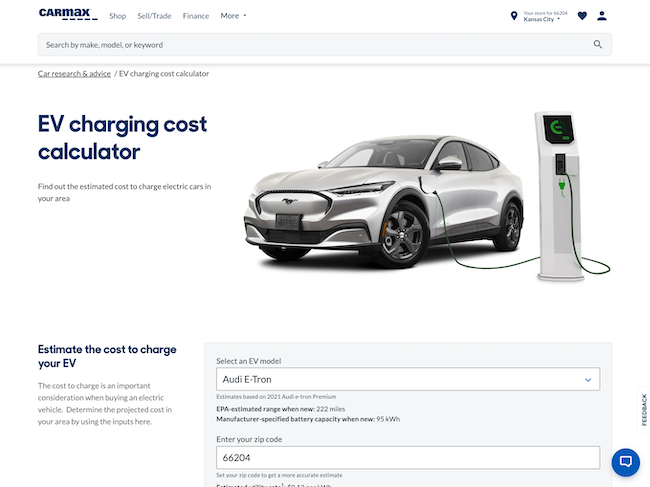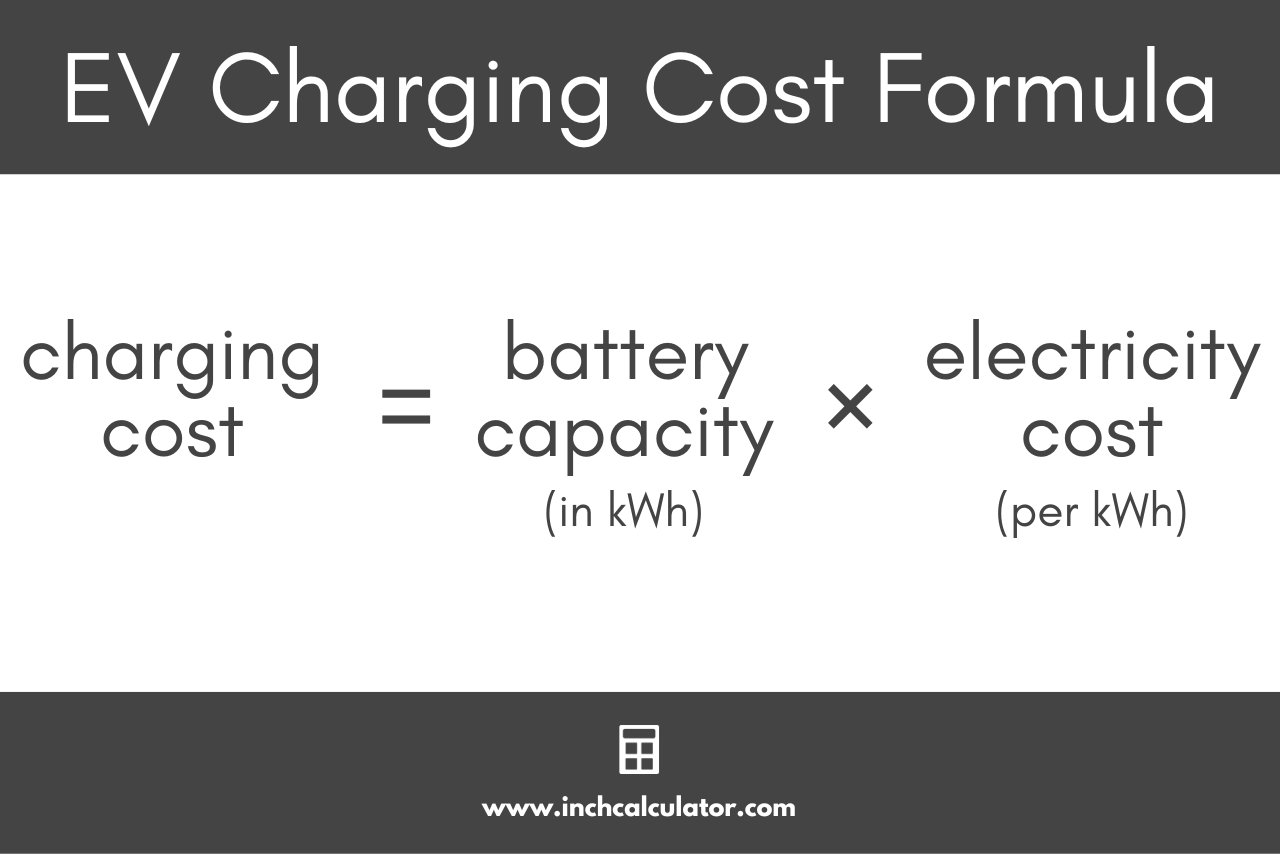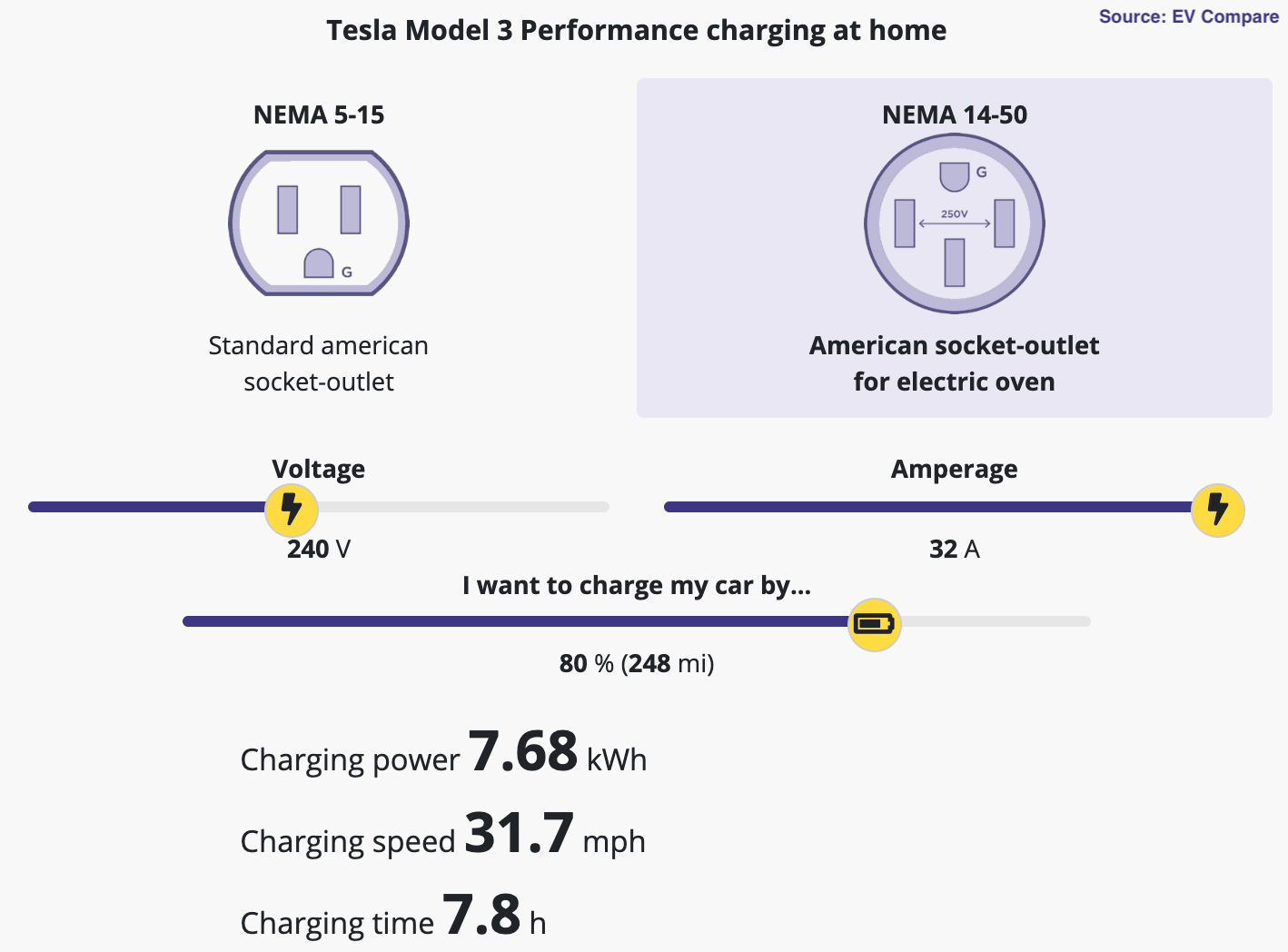An Electric Car Charging Cost Calculator helps estimate the cost of charging an electric vehicle. It considers factors like electricity rates and battery capacity.
Understanding the cost of charging an electric car is crucial for budgeting and cost savings. Electric cars offer an eco-friendly alternative to traditional vehicles, but their charging costs can vary. Different electricity rates, battery capacities, and charging stations impact these expenses.
An Electric Car Charging Cost Calculator simplifies this process by providing an accurate estimate. Users can input specific details like their car model and local electricity rates to get a precise cost. This tool helps you make informed decisions about your electric vehicle’s charging needs, ensuring you stay within your budget while contributing to a greener environment.

Credit: www.carmax.com
Introduction To Electric Car Charging
Electric cars are powered by batteries. Charging these cars is different from fueling gas cars. There are many options to charge your electric car.
Why Electric Cars?
Electric cars are good for the environment. They do not produce harmful gases. These cars are also cheaper to run than gas cars. Many people choose electric cars for these reasons.
Charging Options
There are three main charging options. Home charging is the first option. You can charge your car at home overnight. Public charging stations are the second option. These are found in many places like malls and parking lots. Fast charging is the third option. It charges your car quickly when you are in a hurry.
Factors Affecting Charging Costs
Electricity rates vary by location. Some places have higher rates. This can impact your charging costs. Peak hours often have higher rates. Charging during off-peak hours can save money. Always check your local rates. This helps in planning your charging times. You can then save more.
Bigger batteries store more energy. They also take longer to charge. This can mean higher costs. Smaller batteries are cheaper to charge. Always consider your battery size. This helps in understanding your costs better.
Home Vs Public Charging
Calculate electric car charging costs easily with our tool. Compare home versus public charging expenses to find the most economical option. Save money and time by understanding your charging needs.
Cost Comparison
Charging at home is usually cheaper. Home electricity rates are lower than public charging stations. Public stations may have extra fees. Charging at home can save you money over time.
Convenience Factors
Home charging is very convenient. You can plug in your car overnight. Public charging stations might be far from your home. Sometimes, you may need to wait for an available spot.

Credit: www.pcmag.com
Understanding Charging Times
Level 1 charging uses a standard household outlet. It provides around 2 to 5 miles of range per hour. This method is very slow but convenient. Many people use it overnight at home.
Level 2 charging uses a 240-volt outlet. It provides around 10 to 20 miles of range per hour. This method is faster than Level 1. It is common in homes, workplaces, and public charging stations.
DC Fast Charging provides the fastest charging. It uses specialized equipment. It can charge an electric car to 80% in about 30 minutes. This method is ideal for long trips. It is available at many public stations.
Using A Charging Cost Calculator
Enter the battery capacity of your electric car. Provide the current charge level as a percentage. Include the desired charge level you want to reach. Specify the cost of electricity per kWh. Mention the charging efficiency of your car. Fill in the charging speed if you know it.
The calculator shows the total cost to charge your car. It calculates the amount of electricity needed. The result includes the time required for charging. You can see the cost per charge session. This helps in planning your charging expenses.
Tips For Reducing Charging Costs
Charge your car during off-peak hours. Electricity is cheaper at night. Use a smart charger to schedule charging times. This helps save money. Avoid charging during peak hours. It costs more then. Check your local utility rates.
Drive smoothly to save energy. Avoid sudden stops and starts. Keep your speed steady. Use cruise control on highways. Proper tire pressure is important. It helps with efficiency. Remove extra weight from your car. Less weight means less energy used. Plan your trips to avoid traffic. This helps save battery power.
Environmental Impact
Electric cars help reduce the carbon footprint. They produce fewer emissions than gas cars. This means cleaner air for everyone. Using electric cars can also slow down climate change. Each electric car helps save the planet. The more people use them, the better our world becomes.
Electric cars can use energy from sustainable sources. Solar and wind power are great examples. These sources do not run out. They are also better for the Earth. Charging cars with green energy helps even more. This makes electric cars a smart choice for the future.

Credit: www.inchcalculator.com
Future Of Electric Car Charging
Charging technology is getting better every day. New fast chargers can fill up a car in minutes. Wireless charging pads are also becoming popular. These pads let cars charge without plugs. Smart charging stations can decide the best time to charge. This saves money and energy. Many companies are working on even more new ideas. The future of charging looks very exciting.
Many governments give special rewards for electric cars. These can be tax breaks or cash rebates. Some places offer free charging stations. Others give discounts for home chargers. These rewards make electric cars cheaper to own. They also help the environment. More people are buying electric cars thanks to these incentives.
Frequently Asked Questions
How Do I Calculate The Cost Of Charging My Ev?
To calculate EV charging cost, multiply your car’s battery capacity (kWh) by the electricity rate (per kWh).
How Much Does It Actually Cost To Charge An Ev?
Charging an EV typically costs between $0. 10 to $0. 30 per kWh. This varies by location and electricity rates.
How Much Does A 350 Kw Charger Cost?
A 350 kW charger typically costs between $140,000 and $250,000. Prices vary based on brand and features.
How Long Does It Take To Fully Charge An Electric Car?
Charging an electric car takes 30 minutes to 12 hours. It depends on the battery size and charger type. Fast chargers provide quicker charging.
Conclusion
Calculating the cost of charging an electric car is crucial for budgeting. Our Electric Car Charging Cost Calculator simplifies this process. With accurate estimates, you can better manage your expenses. Embrace the future of transportation and keep your finances in check.
Try our calculator today for seamless electric car ownership.
